Understanding the Warning Signs of Relapse
My Take on Feeling the Approach of a Relapse
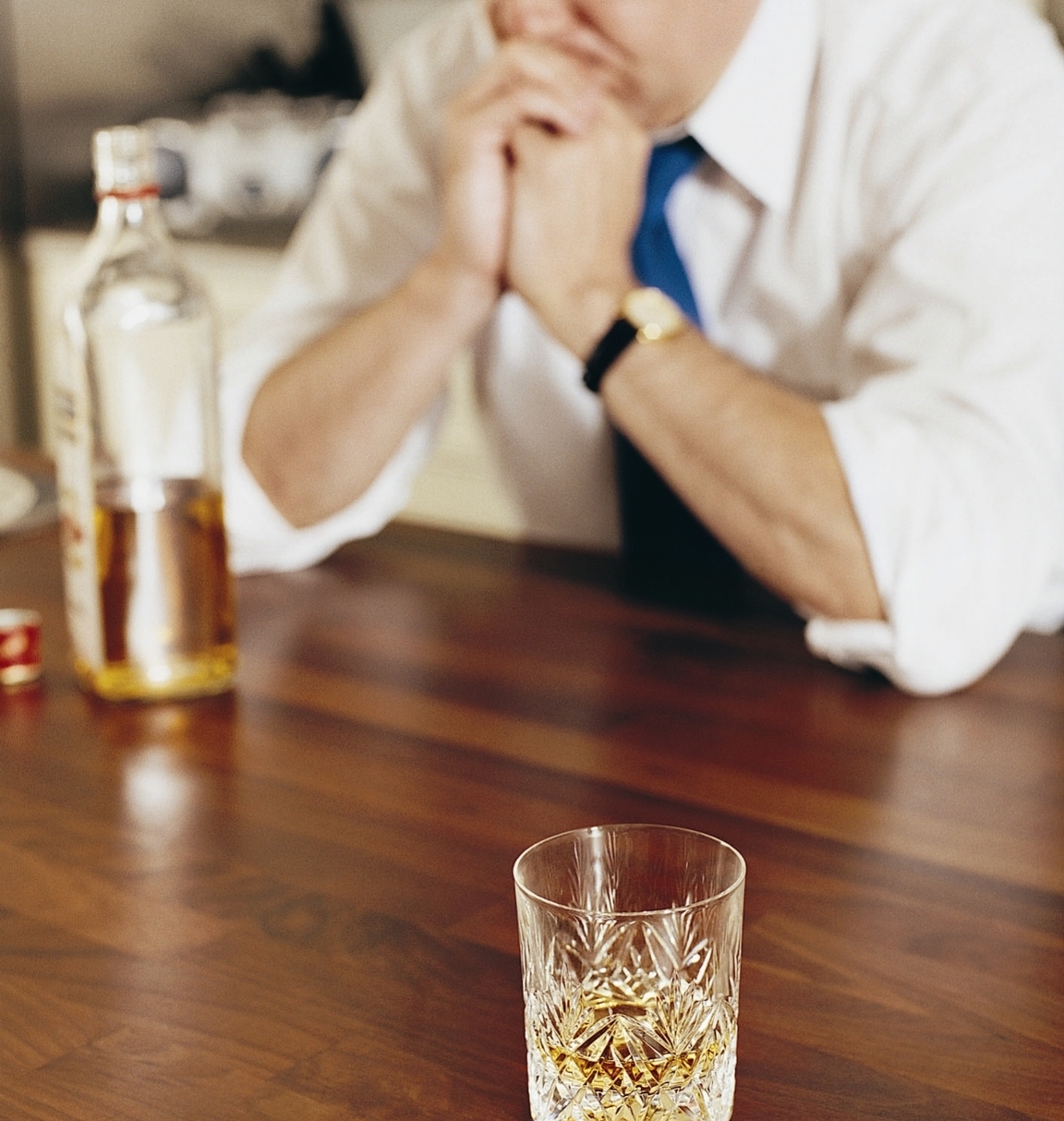 We have been studying the warning signs of relapse since the mid 1950’s. Well, that’s a bit misleading, so let me correct that because our professional study of relapse and strategies for avoiding relapse began in 1973. It is more accurate to say that I began studying my father’s behavioral patterns prior to his periodic relapses into active alcoholism in 1958 at six years of age. Actually I studied more than just his behavioral patterns and the mood shifts that preceded his decision to return to drinking. In fact, I had a systems approach to my analysis before Murray Bowen, the father of Family Systems Theory[1] had completed his research.
We have been studying the warning signs of relapse since the mid 1950’s. Well, that’s a bit misleading, so let me correct that because our professional study of relapse and strategies for avoiding relapse began in 1973. It is more accurate to say that I began studying my father’s behavioral patterns prior to his periodic relapses into active alcoholism in 1958 at six years of age. Actually I studied more than just his behavioral patterns and the mood shifts that preceded his decision to return to drinking. In fact, I had a systems approach to my analysis before Murray Bowen, the father of Family Systems Theory[1] had completed his research.
I had known to pay attention to the behavioral and mood shifts in my mother and older sisters at the earliest warning signs that the cease fire was about to end in our home and the fighting would resume. Most of the chaos in our house emanated from my family system’s reactions to my father’s state of being. More accurately, I don’t remember a single fight in our home that did not revolve around his drinking. Unfortunately, my father seemed to have only three states of being: he was drinking, he was drunk, he was coming off a drunk. The battles were always scary but the most disturbing part was that I could never tell when things were going to finally blow. I was determined to study the actors on the stage at 432 South Olden Avenue because I believed that if I could identify the warning signs of relapse I could do something to prevent the next eruption.
Identifying the Clues
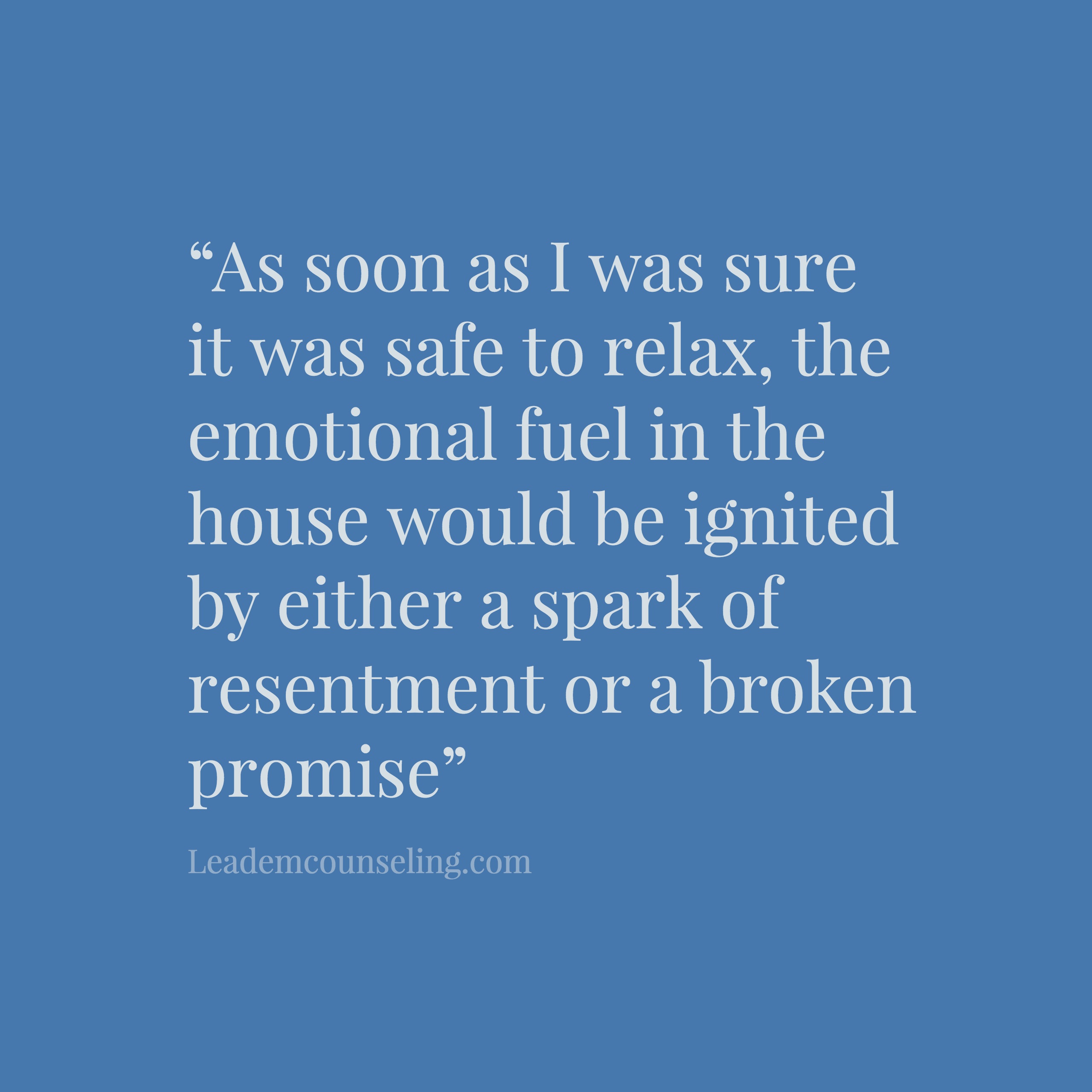 I had to find the clues but it was difficult to catalog the symptoms because the pictures kept changing like the images in a kaleidoscope. As soon as I was sure it was safe to relax, the emotional fuel in the house would be ignited by either a spark of resentment or a broken promise. Mom and Dad would argue and Dad would drink. His defense seemed heartfelt and made pretty good sense: “If you did not hassle me so much about my drinking I would not drink so much!” I could not understand why my Mom could not see the point. It made a lot of sense to me. When I challenged them I was told, “you will understand when you get older”. However, the logic in my house always seemed a bit screwy anyway. My Mom would frequently attempt to console me with sugary treats because she wanted to make me feel better and then when I would be upset about being the second fattest kid in my grammar school she would blame me for eating too much. But I digress.
I had to find the clues but it was difficult to catalog the symptoms because the pictures kept changing like the images in a kaleidoscope. As soon as I was sure it was safe to relax, the emotional fuel in the house would be ignited by either a spark of resentment or a broken promise. Mom and Dad would argue and Dad would drink. His defense seemed heartfelt and made pretty good sense: “If you did not hassle me so much about my drinking I would not drink so much!” I could not understand why my Mom could not see the point. It made a lot of sense to me. When I challenged them I was told, “you will understand when you get older”. However, the logic in my house always seemed a bit screwy anyway. My Mom would frequently attempt to console me with sugary treats because she wanted to make me feel better and then when I would be upset about being the second fattest kid in my grammar school she would blame me for eating too much. But I digress.
I was initially just as clueless when it came to preparing for danger. I would, on occasion, be in the middle of bracing myself for a bad night when my Dad seemed “restless, irritable and discontented”[2], and Mom would be wailing in harmony with Hank Williams’s heart throb recording , “I’m So Lonesome I Could Cry”[3]. When I told her that I was frightened about the fight that was coming that night, she would chastise me for “getting it all wrong” and angrily rebuff my concern with, “John, you have nothing to be afraid of” and a quick dismissal to my room to be “ashamed” of myself for thinking that she would ever let anybody hurt me!
Feeling the Relapse Coming
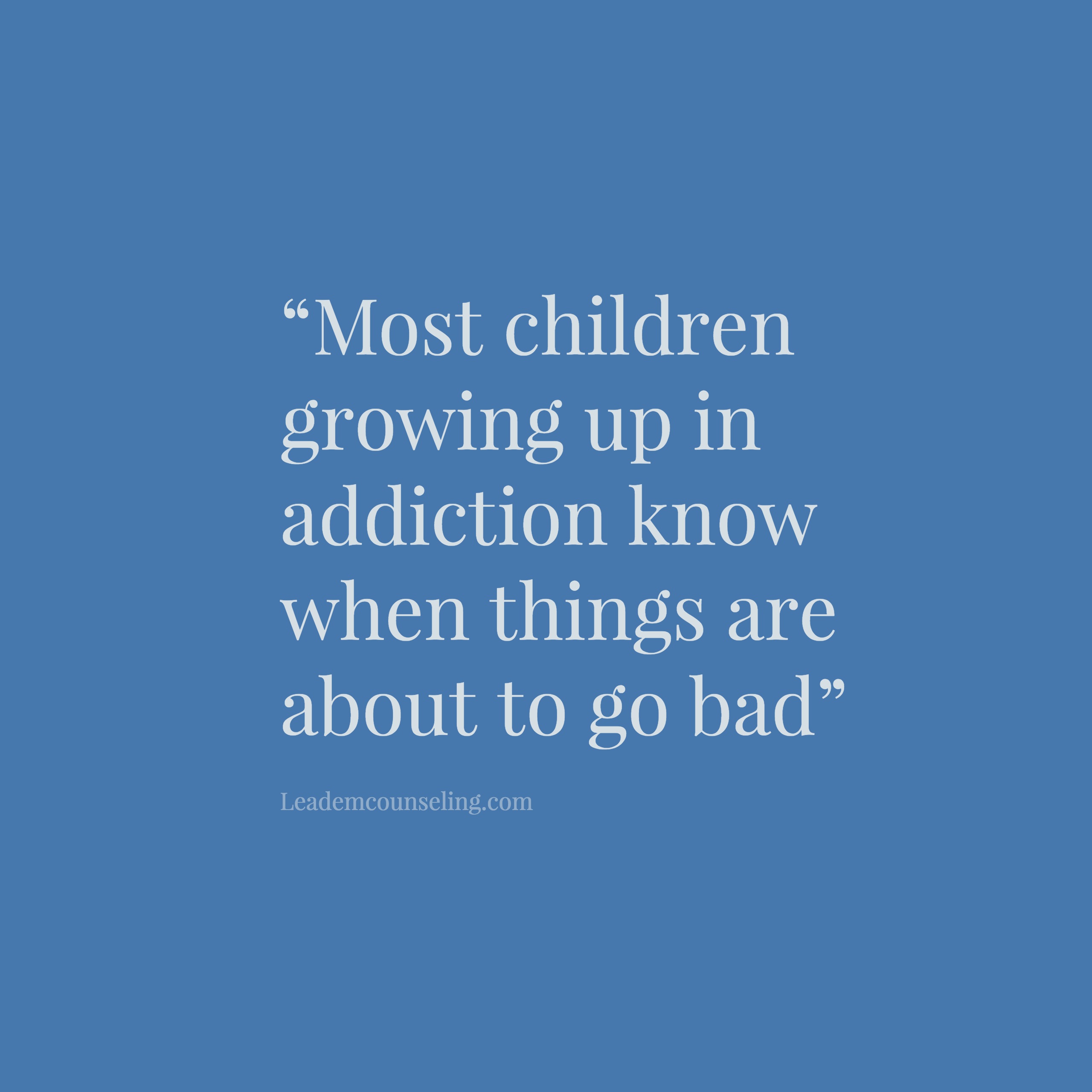 I was pretty sure that there was plenty to be afraid of, but apparently I was wrong, and I felt like I had gotten it all wrong and was stupid — very stupid. Wow, how could I have been so wrong. Eventually, I came to understand that I was not. In fact, in reality she was never able to protect me, and sometimes even set me up as a target by accosting my father with everything his son had done wrong during the day when he arrived home from the bar. It would be another bad night because he was going to teach me another lesson and all of his lessons were pretty violent. When would I ever learn. I remember making a conscious decision to make a list of the warning signs of relapse. Here is what I can remember from the list, that I am sure you will know were not of much value. I have taken the liberty that I did not have as a child to add the truth in (parentheses) after the warning sign.
I was pretty sure that there was plenty to be afraid of, but apparently I was wrong, and I felt like I had gotten it all wrong and was stupid — very stupid. Wow, how could I have been so wrong. Eventually, I came to understand that I was not. In fact, in reality she was never able to protect me, and sometimes even set me up as a target by accosting my father with everything his son had done wrong during the day when he arrived home from the bar. It would be another bad night because he was going to teach me another lesson and all of his lessons were pretty violent. When would I ever learn. I remember making a conscious decision to make a list of the warning signs of relapse. Here is what I can remember from the list, that I am sure you will know were not of much value. I have taken the liberty that I did not have as a child to add the truth in (parentheses) after the warning sign.
My father was headed toward another relapse when:
- No one respected him at his dead end job, where his boss denied him promotions because my dad was late coming back from lunch ( Dad drank his lunch at the Popular Club across the street from the factory)
- My mother’s family stayed too long or his family failed to show up at all (my mother’s family would not drink with him and his own father was usually too drunk to visit anyone)
- Me or my sisters were not grateful for the roof over our heads or the food on the table (we frequently had dinner alone which we heated up on the radiators before the sheriff locked us out of our home)
- When I did not do so well on a spelling test, or when my sisters were failing out of high school (I was asked to help him pass a civil service basic math in my first years of sobriety, that he had to pass because he was a high school dropout and he was at risk of loosing his job- which no-one in the family knew about)
- When he was so upset with having to give me a beating because I disrespected his demand for another beer (I knew Mom would blame me for getting him the beer after she refused so I took the beating for the family, but still I was not the hero. I got blamed for the chaos in the house and spoiling everyone’s favorite TV show Bonanza)
- Because I could not be trusted with secrets (I failed to keep the secret about driving him home from a bar in Bordentown because he could not see as well as I could from my seat on his lap and my mother broke his whiskey bottles)
- When I did not remember the “man’s code” (at my age 7) that held that what happened at the bar stayed at the bar (I seldom wanted to accompany my dad to the bar but my mother insisted on me looking out for him, actually she sent me to spy on him because she suspected him of cheating on her with other women and he was)
At the risk of stating the obvious, I seemed to know when there was something wrong at a very young age, but there was no way for me to convince others of the coming danger. I knew it. I could feel it. I could see it.
Avoiding Relapse
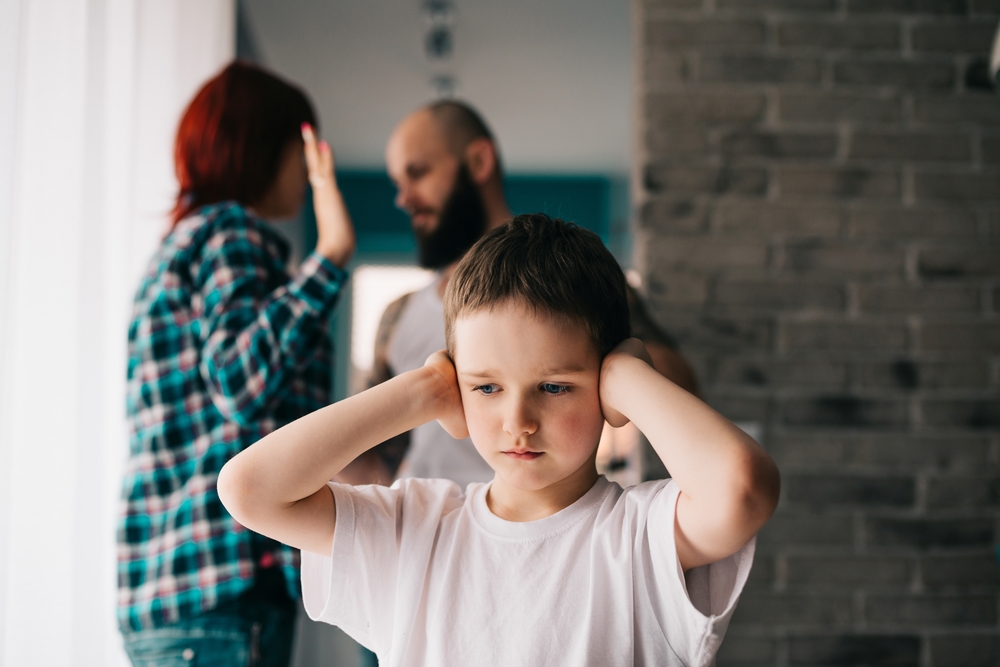 All of us knew there was trouble coming long before it came. Most children growing up in addiction know when things are about to go bad. Actually, everyone living within the circle of addiction knows when the addict that he or she cares for is experiencing an increase risk of relapse. The problem is usually one of communication. I was accused many times by the adults in my life of being a poor communicator because I did not know what to call it or how to describe it. But I sure felt it.
All of us knew there was trouble coming long before it came. Most children growing up in addiction know when things are about to go bad. Actually, everyone living within the circle of addiction knows when the addict that he or she cares for is experiencing an increase risk of relapse. The problem is usually one of communication. I was accused many times by the adults in my life of being a poor communicator because I did not know what to call it or how to describe it. But I sure felt it.
Relapse Can be Identified, Intervened on and Prevented
As we have said many times before in our blogs, relapse can be identified, intervened on and prevented. I told you I would not stop saying it. I probably should apologize but I cannot until the phase becomes a household term.
We want everyone to know that there is hope in the recovery process and that every relapse is unnecessary and can be prevented. We do not get frustrated with folks who relapse and we do not challenge them for not having sufficient motivation.
We believe that relapses will always occur because the person is inadequately prepared for coping with the emotional challenges of life. When life gets too uncomfortable, every inadequately prepared recovering person will remember the way that he or she once relieved pain, in spite of the fact that his or her drug of choice eventually cause more pain than it removed.
Learning to Cope With Life
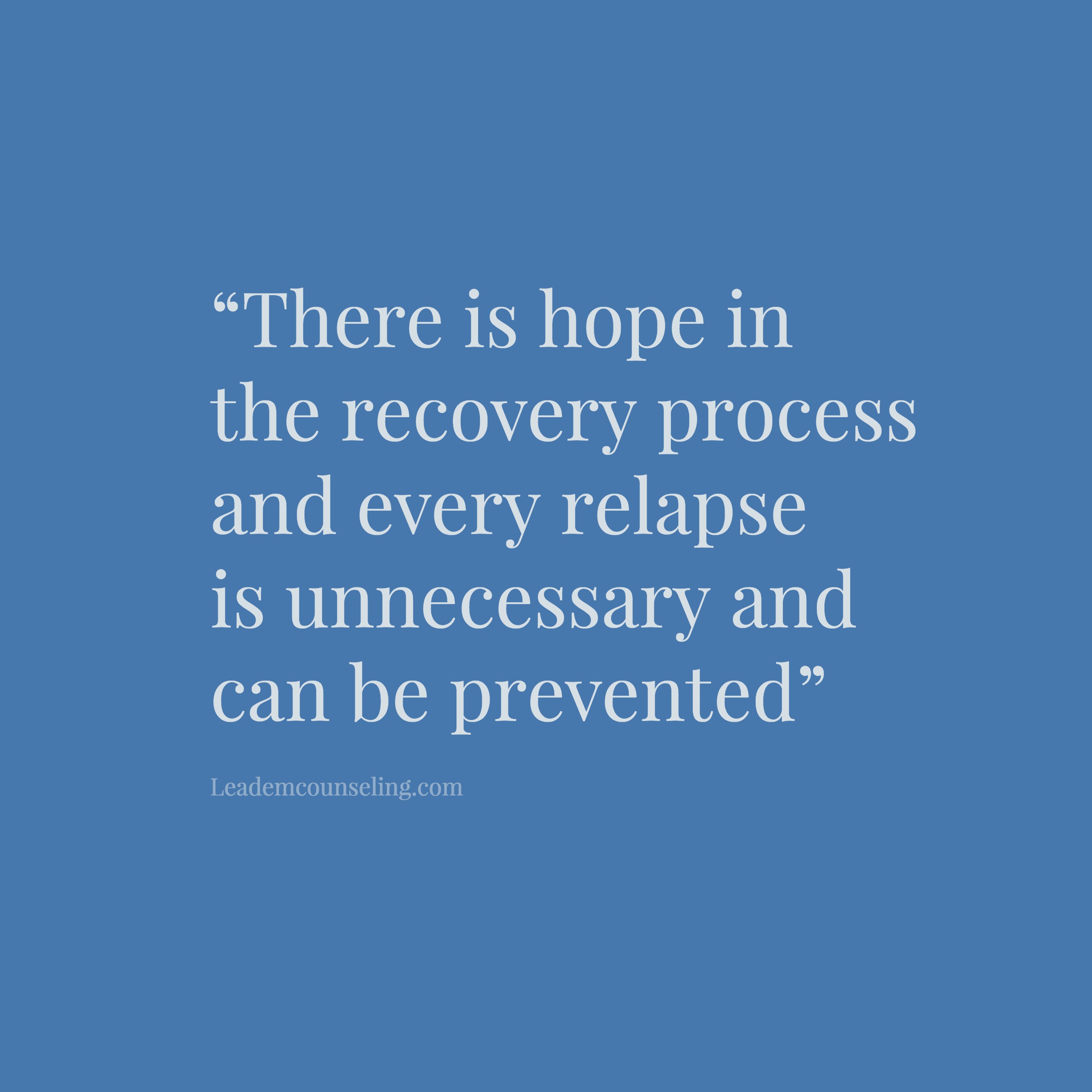 Our model for relapse prevention does not prescribe a series of predictable causes for or warning signs of a prospective relapse because we do not believe that there are any. We believe that relapses occur because the coping strategies that folks have for dealing with present and past emotional challenges are inadequate and must be replaced. Furthermore, we do not believe that personalities are the problem. In fact, we see personalities as the “home office” for how we cope with life and as such are the by-product of our life experiences, and all of our lives are different.
Our model for relapse prevention does not prescribe a series of predictable causes for or warning signs of a prospective relapse because we do not believe that there are any. We believe that relapses occur because the coping strategies that folks have for dealing with present and past emotional challenges are inadequate and must be replaced. Furthermore, we do not believe that personalities are the problem. In fact, we see personalities as the “home office” for how we cope with life and as such are the by-product of our life experiences, and all of our lives are different.
Because of how unique people’s lives are, our model was designed to help the addict and his or her support system understand specifically how the maladaptive coping strategies came to be and what challenges will have to be overcome to replace them with healthy coping strategies.
We welcome you to write to us about challenges you or those you care for might be struggling with in recovery and we will share with you privately or openly in the blog the challenges and interventions we would want to address. Until then, keep the Beacon of Hope shining for those who might loose their way on the recovery road.
Please keep in mind our upcoming training in relapse prevention whose details are listed here for your references.
Addendum from John Leadem: Just hours after completing this article, I learned that my sister passed away and therefore I would like to dedicate this article in her memory for the unnecessary pain that she, our other sister and I suffered because relapses continued at our childhood home without intervention. Her passing has strengthened my commitment to talking about this very important topic.
See our book: An Ounce of Prevention: A Course in Relapse Prevention
Related Article(s): Identifying the Stages of Relapse and Recovery From Relapse
Relapse Prevention: A Problem of Wineskins – Not Motivation or Grace
How to Avoid Relapse? How to Put a Relapse Prevention Technique Into Action
About the Authors
 Both John and Shawn Leadem are Licensed Clinical Social Workers in private practice in Toms River, New Jersey.
Both John and Shawn Leadem are Licensed Clinical Social Workers in private practice in Toms River, New Jersey.
John has recently celebrated his 45th year in recovery and believes that “service to others is the cornerstone of spiritual maturity.” His professional service to addicted individuals and their families has included the development and direction of addiction treatment services in a full array of modalities from half-way houses to large residential treatment facilities over the past 44 years.
Shawn’s lifelong exposure to the recovery culture and his personal recovery experience has left him with a deep personal empathy for the social and emotional suffering endured by others and a strong faith in a person’s ability to change. He has received his certification as a Sexual Addiction Therapist and as a Multiple Addictions Therapist by the International Institute for Trauma & Addiction Professionals.
Together, John and Shawn have co-authored and brought their unique treatment model of relapse prevention, An Ounce of Prevention: A Course in Relapse Prevention, to residential treatment centers across the United States, they have trained therapists at numerous national and international conferences, and most recently have trained many EAP programs associated with many State Unions.
Copyright, John Leadem & Shawn Leadem, 2018
You are free to copy this article for future reference, to post it on other web sites and to share it with family or friends. If you would like to have permission to include it in a publication of your own you can request written permission by contacting the authors at www.leademcounseling.com.
[1] “Theory.” The Bowen Center, thebowencenter.org/theory/.
[2] Alcoholics Anonymous : Alcoholics Anonymous, www.aa.org/pages/en_US/alcoholics-anonymous.
[3] Kreps, Daniel, et al. “40 Saddest Country Songs of All Time.” Rolling Stone, 26 Sept. 2014, www.rollingstone.com/music/lists/40-saddest-country-songs-of-all-time-20140926/brad-paisley-and-alison-krauss-whiskey-lullaby-20140926.
[apss-share networks="facebook, twitter, google-plus, pinterest, linkedin" counter="0" total_counter="0" http_count="1"]







3 Comments | Post Comment
Thank you for your honesty and strength. Do you think Al-Anon would have made a difference?
Thank you for your thoughtful question. I will not comment directly on your question out of deference to the Eleventh Tradition. What I can say is that if it were not for the support I eventually derived from an organization aimed at supporting the children of alcoholics I would not be alive today. I only wish my mom had gotten help for herself from a twelve step fellowship years before, when it was offered.
Thank you for sharing your personal story. I can see so many patterns and feel for all of you. Your grandfather was an alcoholic and your dad no doubt suffered at his hand. Your mom was caught in something that she didn’t plan on when she said “I do”. And very sad that she was willing to sacrifice the children and in particular you as the son. As a mom, I can’t imagine not protecting the children. I so appreciate that you have changed the narrative for your children and grandchildren but also have tools with your course that gives people tools to make changes for their families as well. THANK YOU!
Leave a comment